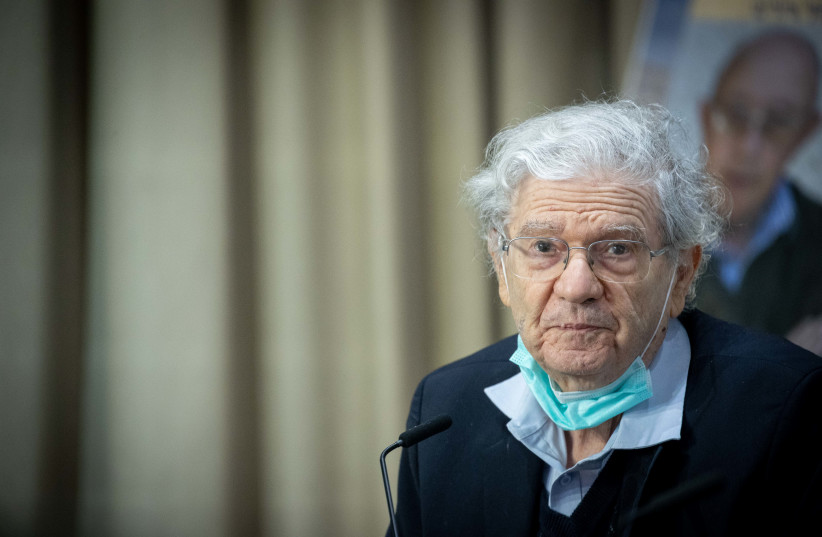Former High Court of Justice President Aharon Barak issued a statement against the reasonableness standard bill on Sunday before the amendment's final reading.
"I strongly oppose the bill to abolish or reduce the reasonableness standard, and am convinced that the proposal, if approved by the Knesset, will seriously damage the fundamental values of Israel as a Jewish and democratic state," said Barak. "It threatens to undermine the rule of law, proper administration, the purity of morals in government, and the basic rights of every person in Israel."
The former High Court president dismissed the idea that his past statements on reasonableness could be used to sanction the bill. Prime Minister Benjamin Netanyahu in his Thursday speech noted that Barak had said in 2019 that the reasonableness standard could be dropped.
Justice Noam Sohlberg had also long been cited by Knesset Constitution, Law and Justice Committee chairman MK Simcha Rothman during the debates on the bill, saying that it was based on "Sohlberg reasonableness." While Sohlberg's writings do call for restricting the standard from applying to elected officials, on Tuesday he said that he meant for this to be done through rulings and justice written opinions, not legislation. He quickly clarified his comments were not directed at current events.

Taking the blame no more
Barak has long been blamed by the Israeli right for the expansion of powers of the judiciary. Critics note that Barak oversaw the High Court during much of the 1990s "constitutional revolution" that gave the courts the power of judicial review.
Other retired High Court Justices have spoken out against the reasonableness bill in recent days. Former High Court president Dorit Beinisch spoke at a Israel Bar Association anti-judicial reform conference on Thursday, in which she claimed that reasonableness was only the beginning and the coalition would continue with changing the Judicial Selection Committee.
"This reform is not intended to fix the court, but to strengthen the political arms of the government," said Beinisch.
Retired justice Yoram Danziger said at the conference that "The Israeli government is interested in one thing -- taking over the judiciary. This will not happen. The High Court will remain independent."
The reasonableness standard bill, which was placed on the Knesset table for the second and third readings on Wednesday, would limit a common law power that allows judicial review of government administrative actions deemed extremely beyond what a reasonable authority would undertake. The standard would no longer be applicable to the administrative decisions of the government, prime minister, and other ministers.
Also on Sunday, the Israel Bar Association National Council announced that it would be filing a petition to the High Court against the bill once it passed. This would be done with the budget of the association backing the campaign.
